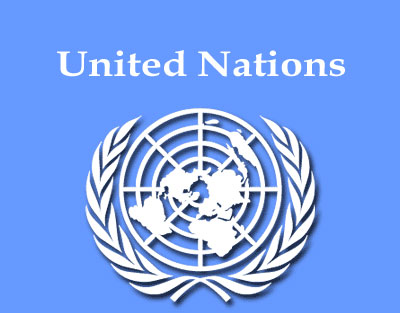Nobel, neighbours sour Serbia's success at UN
 Belgrade - Serbia's latest slap came from the Nobel peace prize committee Friday, ending a week in which Belgrade declared a rare diplomatic triumph in its quest to keep Kosovo.
Belgrade - Serbia's latest slap came from the Nobel peace prize committee Friday, ending a week in which Belgrade declared a rare diplomatic triumph in its quest to keep Kosovo.
Only on Wednesday, Serbia hailed the UN General Assembly decision to back its campaign for an International Court of Justice (ICJ) opinion on Kosovo's declaration of independence.
The initiative was opposed by United States and other big Western powers, all of which quickly accepted Kosovo as Europe's newest state after it unilaterally announced its split from Serbia in February.
But already on Thursday, euphoria in Serbia was harshly dampened when two crucial neighbours, Montenegro and Macedonia, acknowledged Kosovo's independence.
The two small nations, once joined with Serbia in Yugoslavia and now straining to enter the European Union and NATO, have faced US pressure to recognize Kosovo.
That raised the number of nations that have ignored Belgrade's fury and established ties with Kosovo to 50.
Belgrade was particularly stung by Montenegro, which it considered its "sister republic." The tiny Adriatic state was in 2006 the last to split from the remnants of the old Yugoslav federation, and both nations share historic, ethnic, religious and cultural roots.
In a sharp reaction, Serbia immediately expelled the Montenegrin ambassador and took the same step with Macedonia on Friday afternoon.
Then, while news still brimmed with optimism over pending deliberations by ICJ - even though its ruling would not be binding and returning Kosovo to Serbia is impossible in practice - the Nobel Peace Prize went to Finnish diplomat Martti Ahtisaari.
Praised by the prize committee for his peace mediation in Africa and Asia over the past three decades, he is regarded as an utter villain in Serbia.
Ahtisaari's roles in Namibia or Indonesia were forgotten, set aside over his mediation in talks on the status of Kosovo in 2005-2007.
The talks failed, amid constant accusations of bias by Belgrade, and Ahtisaari hammered out a plan for Kosovo alone - effectively a Western-backed road map to independence with safeguards for the Serbs and other minorities.
Kosovo institutions, dominated by the ethnic Albanian majority, embraced the independence blueprint even though talks with Belgrade failed and the plan was thrown out of the UN due to opposition by Serbia's ally Russia.
His role was to "fully support the stands of one side, the Albanian side," Serbia's then-premier Vojislav Kostunica said after the plan was revealed in early 2007. (dpa)